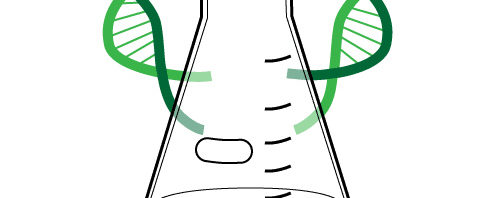Open science movement was the concept I heard first when I was translating news about Sci-Hub and its creator Aleksandra Elbakyan for a science magazine. The title of the first article was ‘“Who’s downloading pirated papers? Everyone” as published on Sciencemag April 2016. The second one was an interview: “Meet Alexandra Elbakyan, the researcher who’s breaking the law to make science free for all” on Vox February 2016. I was fascinated by the idea of free access as a master student who did not access majority of science journals in Turkey unless you are unaware of the existence of Sci-Hub. Being retrospective, I totally understand the hype about open science now; however, knowing that degrading expertise and relying on big data for future manipulations are two giant turnarounds in front of us, I have become a skeptical of open science and the reasons are elaborated in the following parts.
The discussions about open science are circling around unresolved questions. In 2015, Leonelli and Prainsack chose the title of their blog post asking, “To what are we opening science?”. The connotations of being open resonates in the public and scientific community as being visible, accessible, and intelligible (Leonelli and Prainsack, 2015). So, in this open new world, the public or non-experts are welcomed to judge scientific works. For academia, instead, open science is an instrument enhancing transparency and accountability of research. However, the proponent of openness fails to recognize that it is unfairly hard to measure the significance or impact of a scientific work with the absence of informed/educated masses on that subject. Discerning that today’s highly structured measurement techniques, in other words academic metrics, can be flawed and vulnerable to gaming (as outlined by Biagioli in his papers and the book), the inclusion of public without setting evaluation criteria would be disastrous for the nature of science. Science would be used as a weapon against truth to trigger confusion, obscurity, and doubt by releasing massive data without filtering them intellectually. Distributing knowledge across many actors, allowing data and interpretations to flow around, and deciding the one that fits to a puzzle of blurred picture (e.g. Tobacco case) sound strategies of a neoliberal market to a great extent, as identified by Leonelli and Prainsack as well as Mirowski. The latter asked those questions rightfully: “In what sense was science actually ever ‘closed’, and who precisely is so intent upon cracking it open now? Where did all the funding come from to turn this vague and ill-specified opinion into a movement?” (Mirowski, 2018, p.172). With various approaches to openness, proponents can refer to open access, open provision of scientific data, open peer review, citizen science, and Facebook-like platforms. According to Mirowski, the answer to the question of who wants that access is private corporations hankering for to reach out to Big Data and eventually to spread and apply neoliberal forms to science. Correspondingly, this question arises immediately: is there a need for the public to reach out detailed scientific information? Selling open as being democratic and closed as hierarchical, the market already found a solution for the inclusion of non-experts to science.
Open science platforms such as Academia.edu and ResearchGate provide cost-effective and fast knowledge transactions between market prime movers being scholars/experts and most importantly, the public. According to Leonelli and Prainsack, the big emphasis on the cost problem of science is an artifact of the neoliberal policies reflecting today’s research as expensive and redundant. The advocated science platforms are pipelining the Big Data and redistributing it amongst actors and that is why they are turning into monopolies of science. One objection to this line of thinking is from Andrew Piper asking a very similar question as formers but answering differently: Is open science a neo-liberal tool? In his view, open science is the solution to the historical monopolization of knowledge (Piper, 2017). He asserted that “Google’s proprietization of digitized books, ProQuest’s proprietization of dissertation data, Elsevier’s proprietization of journal data — these are all things that stand in the way of open science, of me knowing something.” However, he is clearly missing that the same platforms are already in the open science game. One example is that Elsevier is buying patents for online peer review to automate the process and reduce the cost and finally it is already claiming to be the second larger publisher of open access articles in the world (Mirowski, 2018, p.197). One takeaway point here would be that platforms as being an actor of knowledge redistribution are/will transform to satisfy the needs of a market looking for flexible workers that can switch research programs quickly and deskilled audience that are employed with little duties to reduce cost.
In my own academic journey, I started as being a huge fan of open science due to the promised open access. Now, I do not want to fall into the traps of platforms, but I still want that access. One solution would be educating scholars and re-skilling them with scientific method and incorporated values, so that they can see the trap and use it against platforms, maybe, by applying social or political pressure. One can hope …
References
Mirowski, P. (2020). HPS 93772 Politics of Science Panopto lectures. Open science troubles, University of Notre Dame.
Leonelli, S. and Prainsack, B. (2015). To what are we opening science? Reform of the publishing system is only a step in a much broader re-evaluation. Available at: https://blogs.lse.ac.uk/impactofsocialsciences/2015/04/21/to-what-are-we-opening-science/ (Accessed September 9, 2020).
Mirowski, P. (2018). The future(s) of open science. Social Studies of Science, 48(2), 171–203. https://doi.org/10.1177/0306312718772086
Piper, A. (2017). Is open science a neo-liberal tool? Here’s why not. TXTLAB, 22 February. Available at: https://txtlab.org/2017/02/is-open-science-a-neo-liberal-tool-heres-why-not/ (Accessed September 9, 2020).
